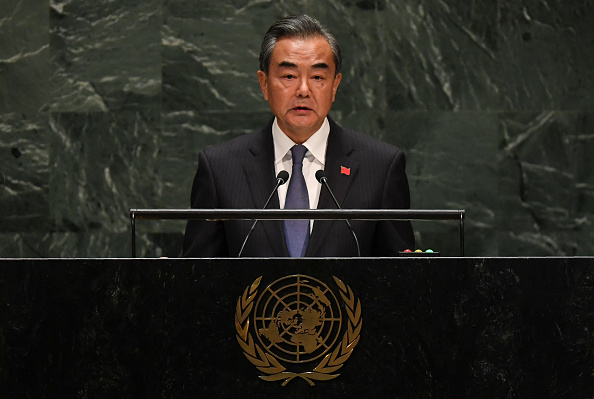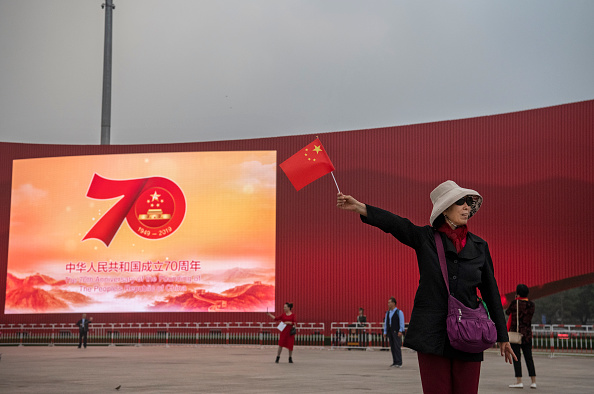
 A World Split in Two?
A World Split in Two?China and the United States dominated headlines this week at the United Nations General Assembly in New York. A prominent focus of discussion at the annual diplomacy gathering was the possible danger of a world divided in two, with China and the United States leading the way in increasing economic, cultural, and geopolitical divides. In his "state of the world" address, UN Secretary General Antonio Guterres warned Member States of the risk of the two countries creating a deeply divided and anxious planet with a climate crisis. Despite the societal pressure and political will to push the climate change agenda forward, neither China nor the United States made any further promises or actions to mitigate the rising threat.
In his UNGA remarks, Donald Trump swore he would not accept a bad deal in the trade negotiations, yet he sounded optimistic about the prospect of reaching consensus with Beijing in the upcoming talks. China's top diplomat, Wang Yi, urged further cooperation between the two powers, yet struck back at Trump's messaging, saying China will not be threatened into a deal.
The United States also continued its criticism of China's human rights record, and led a 30-country denunciation of what it described as Beijing's "campaign of repression" against Muslims in Xinjiang. "History will judge the international community for how we respond to this attack on human rights and fundamental freedoms," said Secretary of State John Sullivan. While no representative from China was present at the panel, a Foreign Ministry spokesperson accused the US of "using religion and human rights as a cover to slander and smear China's Xinjiang policies and interfere in China's internal affairs again and again."
 Preparing for a Happy Birthday
Preparing for a Happy BirthdayThe People's Republic of China will celebrate its 70th anniversary on 1 October, as Beijing prepares a massive celebration showcasing its history and incredible transformation, and China is ensuring that the event will go off without a hitch, going so far as to ban alcohol, drones, and balloons in the lead up to the celebrations.
Outspoken activists and critics have allegedly been ordered not to speak to foreign media, and have been forbidden from traveling to Hong Kong, which is bracing for massive protests this week in advance of the celebrations.
 Searching for an Alternative
Searching for an AlternativeIn a sign of goodwill, China has given out new waivers to domestic importers to buy American soybeans tariff-free ahead of US-China trade talks in mid-October. The waivers were small in comparison to past purchases, amounting to 5 million to 6 million tonnes, and only gave soybean futures in Chicago a slight boost.
Despite Beijing's gesture of good faith, China seems to be looking for an alternative to US soy products by way of South America. China approved additional soymeal imports from Argentina this week, and is considering the same possibility with Brazil, according to Brazillian soy processor Abiove.
China's overall demand for soy has declined in the past year because of swine fever, as soy is the primary ingredient in pig feed. Swine fever is estimated to decimate roughly half of China's pork industry by the end of 2019. This has given Beijing an unexpected buffer against US soy tariffs. China's swine fever problem has also pushed the world's top pork-consuming country to turn to Brazil for pork. Earlier this month, Beijing authorized 25 additional meat processing plants to export to China, bringing the total up to 89. As China prepares to attend the BRICS summit next month in Brazil, all eyes will be on China and Brazil.
Prepared by China-US Focus editorial teams in Hong Kong and New York, this weekly newsletter offers you snap shots of latest trends and developments emerging from China every week, while adding a dose of historical perspective.
- 2019-09-20 Another Round
- 2019-09-13 Olive Branch or Olive Twig?
- 2019-09-07 The Unwinnable War?
- 2019-08-31 “Sorry, it’s the way I negotiate”
- 2019-08-23 Tit for Tat
- 2019-08-17 Slowdown Ahead?
- 2019-08-09 Yuan on the Rocks
- 2019-08-02 Ratcheting Up the Crisis
- 2019-07-26 Playing Defense
- 2019-07-19 “Stain of the Century”
- 2019-07-12 Whichever Way the Wind Blows
- 2019-07-04 A Gentlemen’s Agreement
- 2019-06-28 A Truce on the Horizon?
- 2019-06-22 Three’s A Crowd
- 2019-06-14 Battle for Hong Kong
- 2019-06-07 Panda Diplomacy
- 2019-05-31 Trade Diversions
- 2019-05-25 Farm Aid or Band Aid?
- 2019-05-17 Risky Business
- 2019-05-10 Two Steps Forward, Two Steps Back
